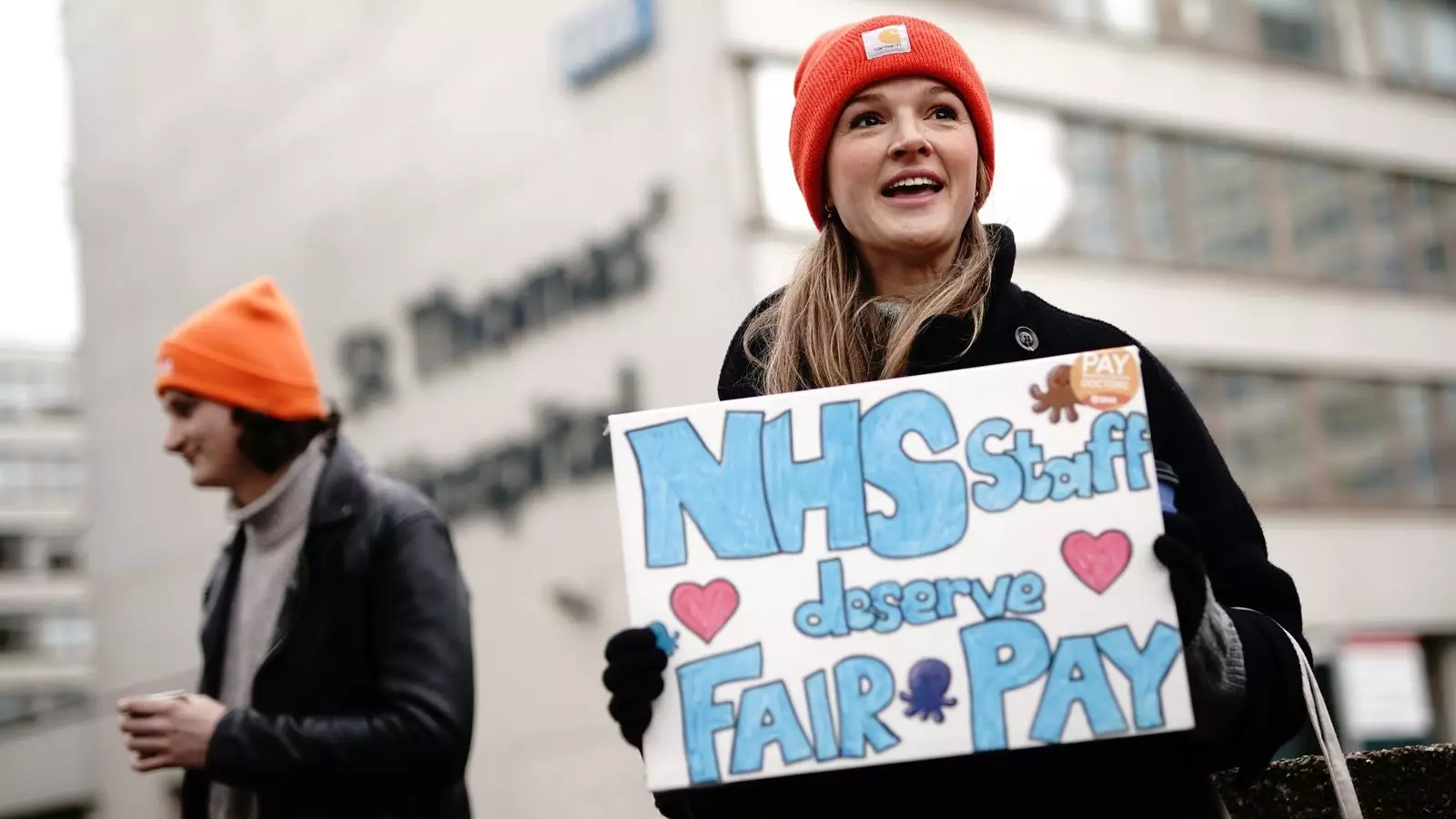Junior doctors in England have been offered a significant pay rise of 22.3% in an attempt to put an end to the ongoing strike action. This offer, to be spread out over a period of two years, includes a pay increase of 8.1% to 10.3% in addition to a backdated 4.05% rise for 2023-24. Furthermore, junior doctors will also receive a 6% pay increase for the year 2024-2025, along with an extra payment of £1,000, equivalent to a pay rise of 7% to 9%.
Junior doctors have been advocating for a 35% pay rise to compensate for what they perceive as 15 years of salary increases that have not kept up with inflation. The high cost of living combined with the demands and stress of the job have made it increasingly difficult for junior doctors to make ends meet. The strikes and ongoing disputes have not only affected the doctors themselves but have also had a significant impact on patient care and waiting lists within the healthcare system.
In response to the demands of the junior doctors, Chancellor Rachel Reeves has announced the proposed pay rises. The government believes that these pay increases are necessary to resolve the ongoing crisis and bring an end to the strikes. Despite the hefty price tag of the pay rise, costing an estimated £3 billion for the NHS, experts like Vicky Pryce suggest that the government can indeed afford it. Pryce argues that the cost of not addressing the demands of junior doctors would be even higher in the long run.
The strikes and walkouts by junior doctors have led to a significant number of cancelled operations and appointments, further exacerbating the strain on an already overburdened healthcare system. The lack of resolution to the pay dispute has not only affected the doctors and patients directly involved but has also had a ripple effect on the overall efficiency and effectiveness of the NHS. It is imperative to find a lasting solution to this issue in order to ensure the continued delivery of quality healthcare services.
Moving forward, it is crucial for the government, the British Medical Association, and junior doctors to work together to find a sustainable solution to the pay dispute. While the proposal of a 22.3% pay rise is a step in the right direction, further discussions and negotiations may be required to address the deeper issues at play. Striking a balance between the financial constraints of the healthcare system and the needs of the healthcare workers is essential to creating a fair and functional system that benefits both employees and patients alike.
The offer of a 22.3% pay rise to junior doctors in England marks a significant development in the ongoing pay dispute. While this proposal has the potential to bring an end to the strikes and walkouts that have plagued the healthcare system, it is important to approach this issue with caution and consideration for all parties involved. By working together and finding a compromise, both the government and junior doctors can ensure a sustainable and effective healthcare system for the future.



Leave a Reply